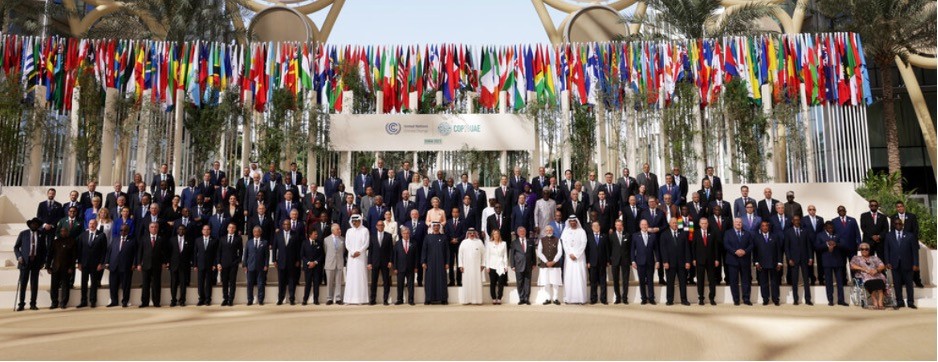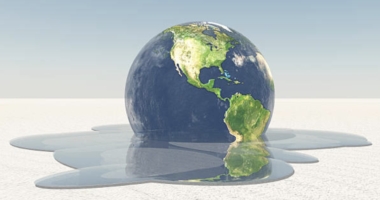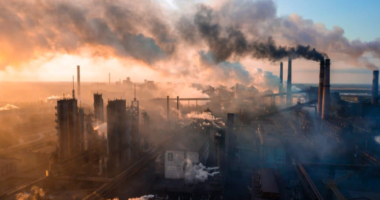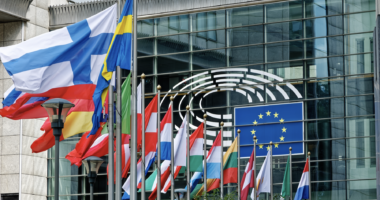Climate, Health and Equity Brief
All eyes on COP28
December 4, 2023
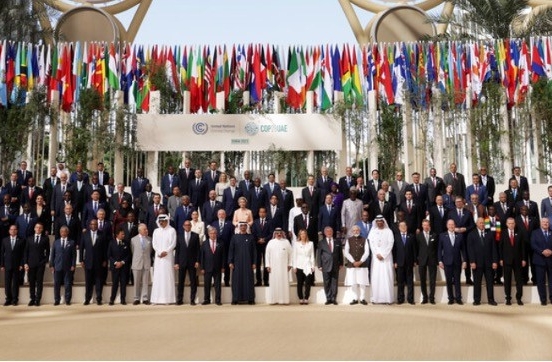
The Climate, Health & Equity Brief is GMMB’s take on the last two weeks’ news on the current impacts of climate change. If you haven’t subscribed yet, you can do so by clicking here.
Hot Topic: The triumph of hope over experience. COP28 officially kicked off on Thursday. More than 81,000 delegates arrived in Dubai to achieve action in the face of damning new reports that despite 27 years of COP meetings, progress continues to fall short of ambitions and fossil fuel emissions continue to increase.
While many countries are pressing for an agreement to phase-out fossil fuels and replace them with renewable energy, revelations surfaced this week that UAE officials planned to use the country’s hosting role to strike new oil and gas deals with 15 nations, enraging attendees just days before the conference began.
There is also early news worth celebrating. Nearly 200 nations agreed Thursday to a framework for a new Climate Impact and Response Fund—known colloquially as the ‘loss and damage fund’—which will direct contributions from the rich countries most responsible for the climate crisis to help developing nations prepare for and adapt to climate impacts. The focus now shifts to securing contributions to meet the $100 billion per year developing countries say they need. Pledges had only reached $429 million by Friday, including $100M each from Germany and the UAE, $75M from the UK, $17.5M from the US, and $10M from Japan.
This month’s negotiations could not come at a more perilous time. Just this week, reports reveal a dramatic spike in Google searches related to climate anxiety, the devastating impact of floods in East Africa, shocking tropical glacier loss in Peru, looming threats to biodiversity globally, and the fact that the world has only a 14% chance of keeping global warming below 1.5°C (2.7°F)—even if all net-zero pledges are met.
We are choosing to be hopeful that these increasingly dire revelations serve as a wake-up call to humanity, starting with those who hold the key to change.
Human Health
Online searches related to climate anxiety have skyrocketed, with English-language searches on the topic from January through October 2023 27 times higher than searches in the same months of 2017, according to Google. (BBC)
After four decades of drought, heavy seasonal rains have submerged villages and towns across East Africa, killed more than 200 people in Kenya and Somalia, and displaced nearly 800,000 people across the region. (Reuters)
A new report estimates that worsening weather disasters have displaced over 1 million people in Latin America and the Caribbean since 2021, and researchers warn that climate migration will become an increasingly pressing issue due to the lack of policies to address climate change. (Axios)
World leaders will host the first-ever health day at COP28 dedicated to addressing the impacts of extreme heat, air pollution and the increasing spread of deadly infectious diseases on global health outcomes. (Voice of America)`
Planetary Health
According to a new analysis, the ongoing destruction of nature by climate change, overexploitation and pollution could lead to a “biodiversity catastrophe” by mid-century if humanity does not tackle the drivers of nature loss. (The Guardian)
Peru has lost over half of its tropical glaciers in the last six decades—and with them, over half of the country’s water reserves—with 175 glaciers becoming extinct between 2016 and 2020, according to the Peruvian government. (Reuters)
The UN Environment Programme’s annual Emissions Gap Report found that current emissions-cutting plans will result in up to 2.9C of global warming, with only a 14% chance of keeping global warming below 1.5C, even if all net-zero pledges are met. (Bloomberg)
A new UN report estimates that coastal flooding will increase five-fold over the next century, leaving communities around the world at risk of losing significant land and critical infrastructure and leaving 70 million people in the path of expanding floodplains. (UNDP.org)
Equity
In a landmark move, Germany, the UAE, the UK, the US, and Japan pledged more than $420 million to launch a historic new “loss and damage” fund to help developing nations pay for the increasing costs of climate change, marking an early success for negotiators at COP28. (The Guardian)
A new study found that the world’s richest 1% of humanity generated as many carbon emissions in 2019 as the poorest 66%, with study authors proposing a 60% tax on the wealthiest 1% to fund investments in renewable energy. (The Washington Post)
The Biden administration is opening $2 billion in grants to reduce pollution and fight climate change within disadvantaged communities that disproportionately face underinvestment and heavy pollution levels. (The Hill)
Politics & Economy
Leaked documents revealed that COP28 host United Arab Emirates scheduled meetings with 15 nations to discuss new fossil fuels deals, contrary to the goals of the conference and expectations that the host nations act without bias or self-interest. (BBC)
Despite signing the country’s first major climate law and overseeing record federal investment in clean energy, President Biden will not attend COP28 this year, with aides citing his need to remain focused on the dual crises in Ukraine and the Middle East. (The New York Times)
Action
In a joint paper, 20 of the EU’s 27 member countries have urged the EU to better prepare its existing healthcare systems for climate disasters following the deaths of an estimated 61,000 people during the European heatwaves last summer. (Reuters)
Life as We Know It
Climatologists and meteorologists on the frontlines of climate reporting are shifting careers after experiencing increasing burnout and threats from audiences. (NPR)
Kicker
Looking for a way to make climate change personal for your loved ones this holiday season? Share the impact on cocktails with friends and family at your holiday gatherings.
If we do not signal the terminal decline of the fossil fuel era as we know it, we welcome our own terminal decline.
– U.N. Climate Chief Simon Stiell
The GMMB Climate, Health & Equity Brief would not be possible without the contributions of the larger GMMB team—Aaron Benavides, Stefana Hendronetto, Nikki Melamed, Sharde Olabanji and Marci Welford. Feedback on the Brief is welcome and encouraged and should be sent to [email protected].

